 I have received a lot of emails about GM feeds, so I compiled a post that describes the basic information you need to know about GM in horse feeds, and the potential issues and dangers around them. I also post any new issues at the bottom of this page.
I have received a lot of emails about GM feeds, so I compiled a post that describes the basic information you need to know about GM in horse feeds, and the potential issues and dangers around them. I also post any new issues at the bottom of this page.
GMO – Genetically modified organisms are mankind’s way of producing desired effects within a plant/animal that nature either has not done yet, or cannot do. GM plants are created in a lab by scientists, that alter the DNA of the plant by adding a foreign gene into the plant’s DNA (one example was the flounder fish gene in tomatoes). It’s not an exact science, in the aspect that it works first time, every time. It can take years to perfect, adding millions to the cost of the experiment. The most common alteration to the plants horses eat (corn, sugar) is the addition of Bt bacteria, which alters the plant to resist the intense continual spraying of pesticides on the plants without killing them. It also allows any insects that come into contact with that plant to die from trying to eat it.
Think about this for a second, and then continue reading.
Your horse has the unfortunate ability come into contact with some of the most “advanced” GM (genetically modified) foods. Why is this unfortunate? Because many of them are not approved for human consumption, and to me, feeding a horse something that may not be good for you is, in no way, good enough for my horse either.
Many will tell you that plants have been genetically modified for years. The truth is, plants have been modified forever, and are being modified all the time in nature, according to their needs and what other plants they come into contact with, naturally. GM is different. This modification is not something a plant would come across in nature. Where would a corn plant find a pesticide gene? Plus the methods used to keep the genes stable come into question as well, as many modifications use virus’ and antibiotics as “marker genes” to keep the gene from becoming unstable.
While this is a simplified writing of how GM crops are constructed, I hope to give you enough information to continue to do some research and come up with your own conclusions. As a trainer, I won’t feed them. As a farmer and food producer/grower, I won’t grow them.
Let’s take a closer look at the crops your horse may come into contact with.
One of the most prolific GM crops in the world, corn, as we knew it before GM, is almost gone forever. The GM corn we find today has as many as 8 traits – meaning there are 8 alterations to the DNA of each cell in the corn plant. This includes gene changes to kill various bugs and pests and resistance to different pesticides.
The only GM corn fit for raw human consumption (eat without cooking) is a sweet corn that came to market in 2010. All other corns are either in processed human foods, or used in non-processed forms for animal feeds. Corn is a poor animal feed, a lousy fuel alternative and an unhealthy sweetener, yet we consume millions of pounds of it a day.
There have been no studies to show the effects of GM corn on horses, but research is coming out that questions specific gene changes within the horse that science cannot explain. According to The Horse.com (XY sex reversal in horses: the genes behind the switch) researchers have found “how” mares are now becoming infertile, but they still can’t tell “why” this is happening. In independent studies done by researchers looking for problems with GM foods, rats and mice were used, and the same problem arose. By the third generation of GM fed mice and rats, the generation was incapable of procreation. Big corporate interests dismiss these findings on the basis they are not scientific, but the facts remain:
- There are no studies that show GM does no harm to horses or humans over the long term,
- Corporate interests are expected to monitor their own research and present their findings, making the whole industry ripe for the challenges of integrity. One only has to question motivation to understand this.
Sugar
At the writing of this article, GM sugar hangs in the balance of those with integrity and forethought versus those whose greed and the almighty dollar dangle on the proverbial carrot. A US judge has ruled that GM sugar beets are in violation of federal law, and has ordered the uprooting of all GM sugar beet crops.
Sugar is in all sweet feeds, along with corn, and in many pelleted feeds. While no horse should come into contact with sugar, at least in their feeds or on a regular basis, many will not heed this advice and continue to spike their horse’s insulin levels without a full understanding of what happens inside the horse, and not just on the outside. Cushings and Metabolic Syndrome is rising faster than any of the equine diseases, and equine obesity is now being talked about as an epidemic.
I will keep you posted on future changes to this ruling.
Other Crops
Wheat, barley and oats are slated for the near future. They are currently being hotly debated in both the US and Canada. Europe has banned GM foods/crops for years until 2010, when the ban was lifted, giving individual countries the choice to grow or not to grow. It’s unlikely any of these grains will be grown in 2011, but they are posturing for 2012.
Alfalfa
GE alfalfa is on the table as I write. 2011 may be a test year for it in North America. Testing is not a good thing. Open crops can cross pollinate, and non-GM alfalfa has the potential to become extinct much like corn is close to becoming. Bees don’t need passports. Alfalfa is a cover crop for organic growers. While alfalfa is not the ideal forage for horses, it is used in mass quantities. Should we not be able to buy non-GM alfalfa in the future, we had better hope this experiment works, or our horses lives are delicately placed on the chopping block. I’m not being mean – I’m just keeping it real. Corporate interests and shareholder value is above and beyond all else.
Hay
Although it’s unlikely hay will be modified in the near future, it does come into contact with pesticides from spraying neighboring crops. Pesticides have been linked to cancers and other diseases in humans. Know where your hay comes from. Spend the time to source quality pesticide-free hays.
Equine Health is Changing
Other health issues are cropping up in both humans and horses, such as allergies and genetic mutations. Another article from The Horse.com states that a new genetic mutation was found in Thoroughbreds. While there are many possibilities, such as pollution and pesticides, GM is never analyzed for fear of retaliation from Biotech firms.
Having been around horses for 50 plus years, cancer, allergies and Cushing’s disease was never heard of. A childhood horse died from a heart attack. I remember the vet stating he had never seen this before. Today, it’s becoming common-place. In 2010, in my local area, 5 horses died of cancer, and Max’s neigh-bour was on cancer drugs.
Almost all the crops, short of grass (wheat is a grass) may eventually become your horse’s diet. What concerns so many of those that oppose this technology, is the risk of failure, and the lack of long term studies on internal damage and disease.
What Can You Do
1. Talk to your feed provider. Let them know you are aware of this and that you will not support it.
2. Speak to feed manufacturers and find out where they source their grains and crops. Again, let them know of your discomfort with GM and that you may boycott their feeds should they not have a Non-GM policy in place.
3. Let other horse owners know about GM grains and forage crops. Education is power. The consumer does dictate the future of food, both for themselves and their animals. If no one buys GM, no one will grow it.
My wish: that a feed company would come up with a Non-GM brand of horse feeds. I would pay the price for it!
I urge you to look further into this and if you have questions on GM foods please email me. I have been researching, speaking with scientists, and doing a great deal of “due diligence” on this subject for almost a decade. I use to be excited about this new technology until 1989, when my neighbor showed me how his corn crop can kill a bug in one bite. As we watched the little beetle slowly slip off and die on the ground, it occurred to me – “Food should not kill.”
I encourage everyone to copy and paste this anywhere they like, as long as my name is on it. We need to get this out to all the horse owners possible.
If you want to know more about GM crops/seeds/foods, this PDF may help: GM Crops – just the science
————————–
March 2011: Roundup-Ready GMO Crops May Be Causing Animal Miscarriages and Infertility – could Glyphosate pesticides and GE Alfalfa eventually catch up to the horse world in sterility and miscarriage issues?
A new unknown organism, only visible under an electron microscope (36,000X), with an approximate size range equal to a medium size virus, could have devastating effects on our horse’s miscarrying foals. It is able to reproduce and appears to be a micro-fungal-like organism. If so, it would be the first such micro-fungus ever identified. There is strong evidence that this infectious agent promotes diseases of both plants and mammals, which is very rare: link to article.



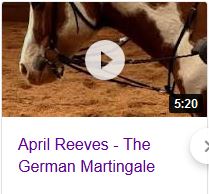
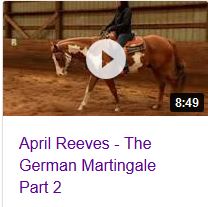
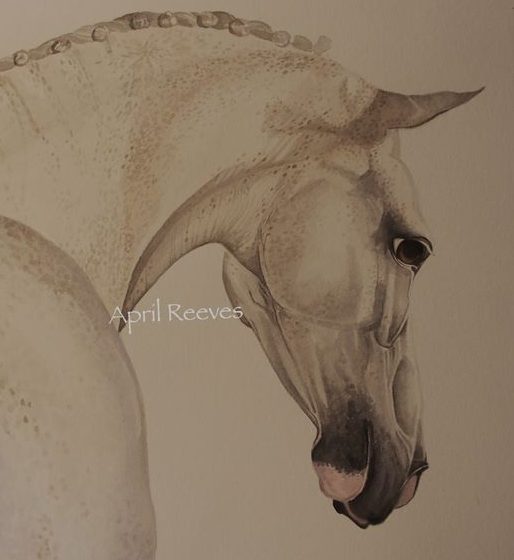
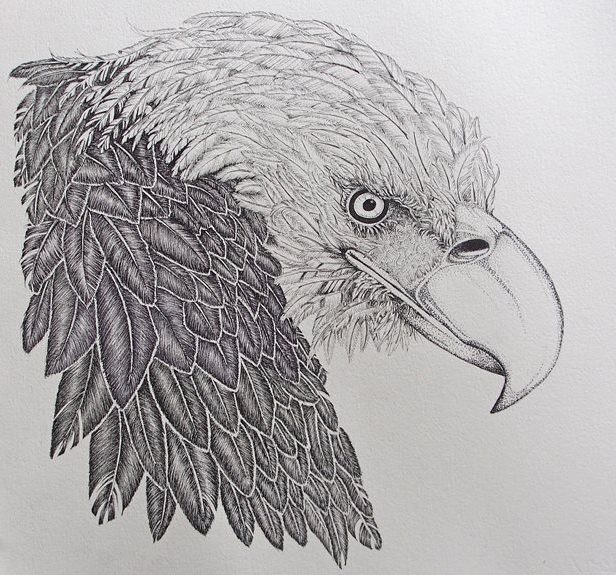
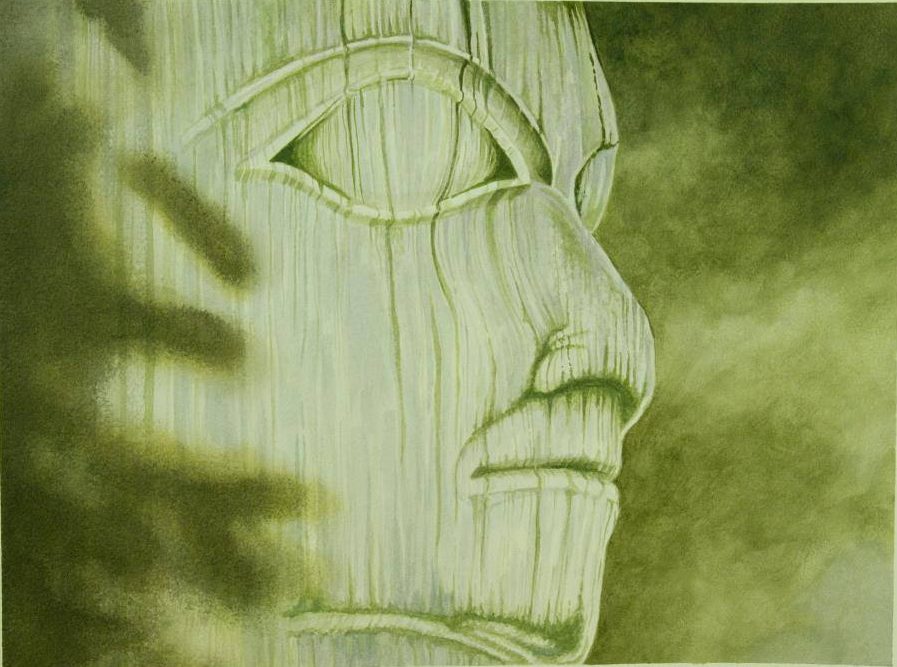
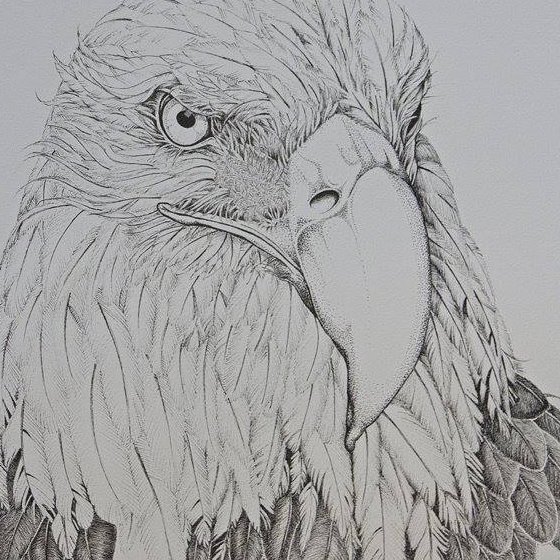

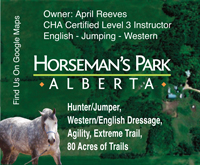


GMO crops are affecting insects and almost every mammals eating them. The GMAC (Singapore authority that protects GMO foods) deny any environmental and health damage. A load of bullshit!
I just wanted to clarify something for you. Most of what you are getting at regarding plants and feed is GENETIC ENGINEERING. Genetic modification happens in labs for sure, but it also occurs in nature when a bee cross pollinates plants. Or when we crossbred horses or any other animal. GM is not necessarily a bad thing.
Genetic engineering happens when scientists in a lab put human DNA in tobacco plants to make them more disease resistant. This is where the danger lies, in my opinion.
Sadly, the scientific world has allowed GM and GE to be used interchangeable and it gives GM a bad name, when not all GM is bad.
So, just wanted to you know the difference. If you are concerned about what you are feeding your horse, it behooves you to do your diligence and research the feed. And know what it is you are looking at when you get the information.
That is SO not true. Genetic engineering in a lab is completely different from that which constructs in nature. People have been eating genetically altered plants and animals forever. GMO engineering is not even similar. Nature uses genetic alteration in the form of vertical inheritance. GMO engineering uses horizontal inheritance. To date, no long term studies have been done on impacts on health and environmental effects. The only value GMO engineering has is with the Biotech corporations pockets and their shareholders. I’m not being mean, I’m just keeping it real.
The danger in GMO engineering is in the way the genes are added. It’s not the gene itself. It’s highly difficult to place a foreign gene into the DNA, as it becomes unstable and moves. Research has found the gene can move over to other areas of the DNA. Also, scientists had trouble at the “end point” of where the gene was inserted, so they needed a way to keep the gene in place (put simply), so they use virus’s and antibiotics to stabilize the new foreign gene. Why? Because they needed something that, like the gene, does not turn off or die.
Our genes play a part in each area of our body. For instance, some genes help rebuild our liver. Some manage the heart. Some the brain. When scientists began this “experiment”, they found the genes became unstable and could move to other DNA, such as the brain to the liver. Natural genes in DNA do not behave this way. Also, natural DNA genes turn on and off as needed. GM genes do not. They are active, 24/7, and when you get a gene, such as a growth hormone (as in the GM salmon Americans are about to dine on) that stays active, and it moves (as many plants and animals eventually do – they haven’t figured out how to stop this yet) it’s just common sense that maybe, this isn’t GOOD?
Also, these genes have been found to stay in humans. Only one human independent experiment was ever done (due to a ban after on all independent studies on Monsanto products) and it was found that GMO genes do stay in humans. Whether or not it has any long term implications remains to be seen. Although, from where I look, with the rise of disease, autism and allergies, it’s not unlikely as one of the culprits, along with pollution and others.
While my explanation may seem simple to any scientist, it does help others to get a better understanding of “why” so many people are becoming informed and making better choices.
I urge you to do more research
I have done a ton of research for over a decade, which is why I’m working hard to get this out to horse owners. This year is a tipping point for Canada, but I will likely repost another current GM article, and we’re rebuilding the brochure (which now has had several thousand requests). People are starting to ask the really tough questions, and if no one answers them soon, we may find a huge backlash from not just horse owners but the general consumer.
Besides the research, I have also helped create 11 GE free zones in BC Canada, one of which is a major cosmopolitan and farming area: Richmond. I have done hundreds of talk shows on both radio and TV on GM issues, toured and spoke, hosted workshops, you name it. Spoken to many genetic engineers. Worked with Greenpeace and the Suzuki Foundation on GM issues. So I’ve done the research.
I blame the cushings/IR increase on breeders overfeeding the youngsters to
plump them up for BIG beautiful foals to be sold. Then when the
unsuspecting owners buy them the damage has already been done and the
horse becomes an instant ‘easy keeper’… add to that lack of riding and
comfort feeding with increasingly lush store bought feed and wala you got
it. As for the cancer issue well that I’d be looking at many things – fly
spray / water quality / barn locations etc…
Couldn’t April (or anyone else for that matter) buy local and go to the
state ag department to find a mill that will mix what they want? It states
April is willing to pay for it. I understand her concern too and her
desire to get good quality feed available and commend her efforts to get
people educated about what COULD be in their feed!
Well said GK! In fact, I’m looking into this very thing. I’m also working with a feed group to look at the viability of organic feeds. It may be a bit early yet, as many horse owners are just waking up to this, but it will eventually happen.
As for the “plumping” of our horses, you are spot on there as well. I do agree that it’s likely a whole variety of pollutants, chemicals and GM feeds that have proliferated a host of diseases not seen in horses before.
We are at a point in our evolution where we need to say “Stop!” But humans, in all our wisdom, historically miss this tipping point. We can modify our foods all we want, but Mother Earth lives in balance. Only the strong survive, and this notion of allowing our planet to take this on without resistance may have some dire consequences. What you resist, persists.
I have a NON GM horse feed. It is certified organic. If interested please call 772-571-8746 or email haystation@bellsouth.net. We are the distributors for this feed and we are located in Florida. We will meet your horse feed needs with no GMO, No Soy, No Molasses, and No Corn. Here is to a healty horse!
thanks,
Robena
Thank you Robena for the information! If anyone else has non-GM horse feeds of any kind please post them: I will make sure everyone knows! Robena, why don’t you friend my facebook page and post your info there as well: https://www.facebook.com/GMOTruth/posts/250285861667187#!/pages/April-Reeves-Horse-Training-Questions-Answers/192644566518
ASm in TN and would be interested to know of similar sources for horse feed here. Thanks. Sizzle2nd@aol.com Am not on FB.
Have you cultivated a list of Non-GMO Equine feeds yet.
I’m looking for one that contains no sweeteners, and has a low NSC. I would think “this feed” wouldn’t contain corn or soy, since they are high risk GMO products?
Thank you for putting the word out. I wish us horse owners didn’t have to do so much thinking and research in order to feed our horses into proper nutrition and condition.
I can’t even imagine what we humans are ignorantly consuming. One mammal at a time!
Is there a link between the somewhat recent increase in white line disease and GMO…..I am sensitive to GMO and if I eat wheat I get horrible splits in my hands……much like white line in the hooves…….
There is no GMO wheat – yet, anywhere, so it’s likely you have a yeast problem. A Naturopath could diagnose it properly: most MD’s would put you on drugs but you’ll only continue to get it worse. Sugar is the culprit. Humans need to get off sugar.
Just a note on the sensitivity to wheat, you might be gluten intolerant which more and more people are because, while not GMO, the wheat has changed so much which has increased the gluten in it that many of us, including me, cannot tolerate it. But, April, I agree with you that she should talk to a Naturopathic doctor and get it diagnosed correctly.
Reblogged this on Pass the SAFE Act!.
Tigershire, GMO is not like what happens in nature…..it is not like breeding a pony to a horse or a barn cat to a linx…..these are in the same species…..but what GMOs are doing is crossing species lines….As a Christian, I pay special attention to What God says in the Bible and He tells us not to cross species for a reason…….He forsaw ahead to what mankind was capable of and He warns us not to cross species not because He wants to hinder our progress but because He wants to protect us….We should pay attention….the illnesses we see in animals could cross onto humans or plants…..when scientists cross human dna onto animal dna we are playing God and the harvest of those seeds we plant could destroy us and our children….it is nothing to play around with….The Bible tells us in a time to come there will be a World Famine perhaps this is why…..Just because we can doesn’t mean we should…..Thank you so much April for writing this article….perhaps some will wake up to the truth and great harm will be averted. Forwarned is forarmed.